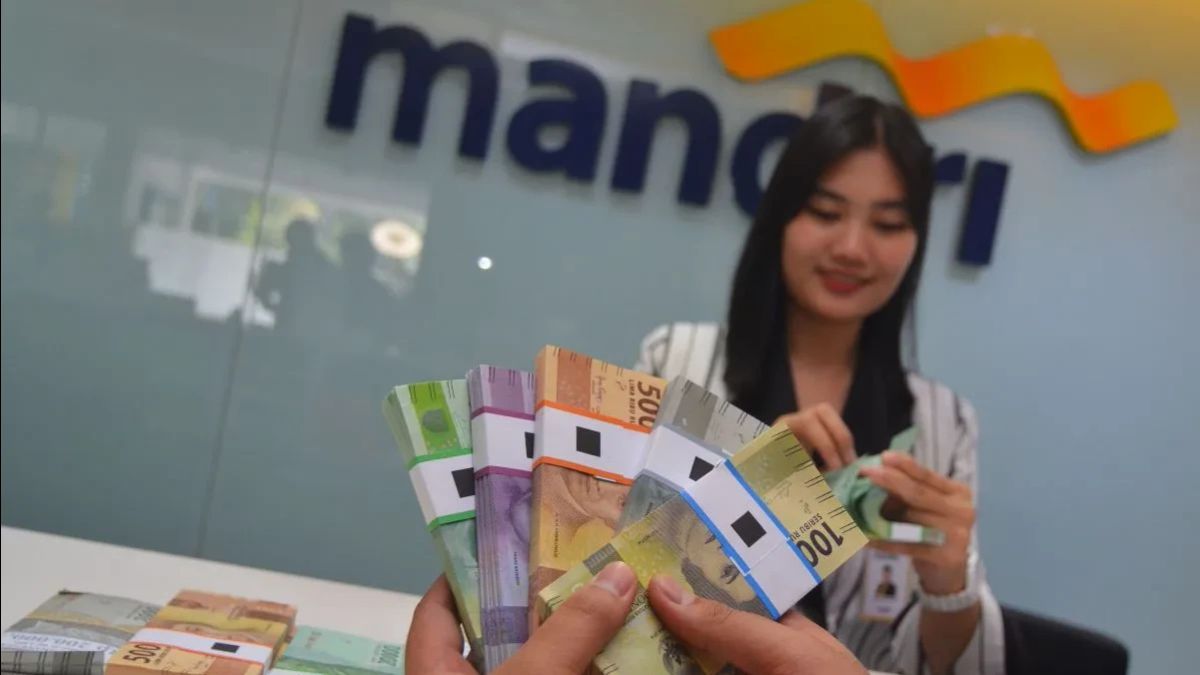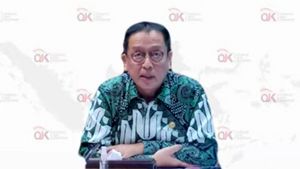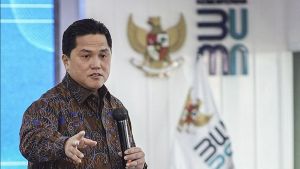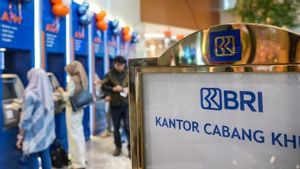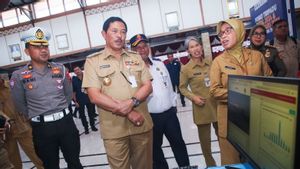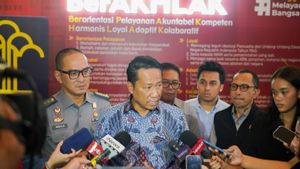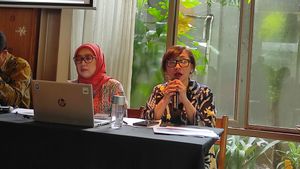JAKARTA - Bank Mandiri is aiming for cooperation in the field of sustainable financing in the ASEAN-Indo-Pacific Forum (AIPF) 2023 event.
In addition to encouraging the transition of a green, resilient and inclusive economy, the implementation of sustainable finance also plays an important role in fighting climate change.
Minister of State-Owned Enterprises (BUMN) Erick Thohir said Mandiri's move was in line with one of the main agendas in AIPF 2023, namely green infrastructure and a resilience supply chain.
The other two main agendas are digital transformation and the creative economy, sustainable; and innovative financing.
"The talk of leaders in AIPF, panel discussions, and business meetings, focuses on these three important areas," said Erick, Wednesday, September 6.
Present on the same occasion, Bank Mandiri Deputy Director Alexandra Askandar said, Bank Mandiri as a market leader of green financing in the banking industry, Bank Mandiri consistently develops sustainable financial products, both in terms of green financing and in terms of sustainable funding.
"This green financing distribution is also a form of Bank Mandiri's support for the government towards a low-carbon economy, where its implementation puts forward the principles of sustainable finance or Environment, Social and Governance (ESG)," said Alexandra.
He explained, until the first semester of 2023, Bank Mandiri's sustainable portfolio distribution reached IDR 242 trillion.
When detailed, financing for the green category reached IDR 115 trillion, while the social category reached IDR 127 trillion.
He detailed that several sectors that dominate, including the sustainable agriculture sector amounting to IDR 95.6 trillion, renewable energy IDR 8.9 trillion, eco-efficient products IDR 4.7 trillion, green transportation IDR 3.2 trillion, and other green sectors IDR 2.8 trillion.
To support the improvement of Green Financing, Bank Mandiri also continues to develop other sustainable financial solutions.
Bank Mandiri has formed an ESG unit that functions as a control tower in the implementation of sustainable aspects and already has an ESG financing desk capable of offering various innovative sustainable financial solutions in accelerating the carbon-low economy, such as green loan, transition financing, and Sustainability Linked-Loan (SLL), said Alexandra.
To support green financing growth, Bank Mandiri is also developing various sustainable funding instruments. On July 4, 2023, Bank Mandiri has issued phase I Green Bond instruments worth IDR 5 trillion.
Seeing the considerable potential for carbon trading in Indonesia, the government has started the basis for determining carbon prices by enforcing Presidential Regulation No. 98 of 2021 concerning Carbon Economic Values (NEK) to achieve the Nationally Determined Contribution (NDC) target.
"Until now, the Emission Trading System trial, especially in the Energy sector, has been carried out and the carbon trading mechanism in Indonesia is planned to be launched by the end of 2023, which is directly supervised by the Financial Services Authority (OJK)," said Alexandra.
In order to support carbon trading, Bank Mandiri proactively collaborates with various stakeholders, both with regulators (OJK), ministries, carbon exchange organizers, and other related institutions.
Bank Mandiri is ready to act as a liaison between financial markets and sustainability goals.
"As the first bank to launch a digital carbon tracking in Indonesia, Bank Mandiri hopes to participate in carbon trading and has targeted NZE operationally by 2030," he hoped.
Alexandra explained, Bank Mandiri has succeeded in reducing its carbon footprint every year.
اقرأ أيضا:
In 2020, the successful emission was reduced by 46,261 tCO2e, then in 2021 it was 47,328 tCO2e, and in 2022 it was 59,076 tCO2e.
Adopting ISO 14064-1.2,3 and Green Gas House (GHG) Protocol Standard, Bank Mandiri's operational carbon footprint calculations are divided into three emissions coverage, namely Fuel (BBM, solar generator, cooler), Electricity (electricity) and Business Travel (official travel).
As a state-owned bank committed to implementing ESG in reducing carbon emissions, Bank Mandiri stated that it is ready and will support cross-border carbon trading in the ASEAN-Indo Pacific which can have a positive impact on the economy and environmental sustainability.
The English, Chinese, Japanese, Arabic, and French versions are automatically generated by the AI. So there may still be inaccuracies in translating, please always see Indonesian as our main language. (system supported by DigitalSiber.id)
